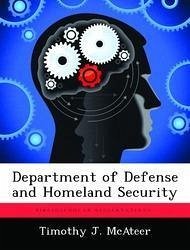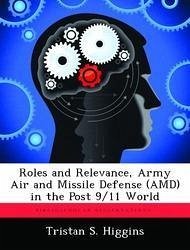
Department of Defense and Homeland Security
Versandkostenfrei!
Versandfertig in über 4 Wochen
52,99 €
inkl. MwSt.
Weitere Ausgaben:

PAYBACK Punkte
26 °P sammeln!
It is quite possible that after the events of 11 September 2001, the roles and missions of the Department of Defense in the area of Homeland Security are destined for change. This monograph provides and examination of the legal, and traditional aspects of Homeland Security in the U.S. and the current framework for managing a domestic Weapons of Mass Destruction (WMD) incident. Understanding the past roles and missions of the DoD in regard to Homeland Security are relevant as the Office of Homeland Security (OHS) formulates a comprehensive national strategy for Homeland Security. Throughout the...
It is quite possible that after the events of 11 September 2001, the roles and missions of the Department of Defense in the area of Homeland Security are destined for change. This monograph provides and examination of the legal, and traditional aspects of Homeland Security in the U.S. and the current framework for managing a domestic Weapons of Mass Destruction (WMD) incident. Understanding the past roles and missions of the DoD in regard to Homeland Security are relevant as the Office of Homeland Security (OHS) formulates a comprehensive national strategy for Homeland Security. Throughout the Nation's history, the American public has consistently equated Homeland Security with the Armed Forces. Immediately following the 11 September attacks there was confusion among many in the U.S. government as to which federal agency was responsible for Homeland Security. Several key members of the Senate Armed Services committee expressed concern over the current security framework and the DoD's supporting role in domestic Homeland Security. This monograph addresses these issues through an examination of the DoD's (Armed Forces) historical role in the defense of the nation as well as its role in domestic support operations. The monograph begins with a brief analysis of the emerging threats that the United States faces, and offers a proposed definition for Homeland Security. This is followed by an examination of the evolution of legal considerations when employing federal military forces in a domestic support capacity. It addresses the Posse Comitatus Act and recent refinements to the Act that circumvent its provisions in instances of clearly identified threats to the Nation's interests. The second chapter includes an analysis of Civil Defense and the DoD's participation in past Civil Defense missions. A chronology of Civil Defense in America is included beginning with post World War I activities up through the present time. This analysis illustrates that in time of crisis, whe












